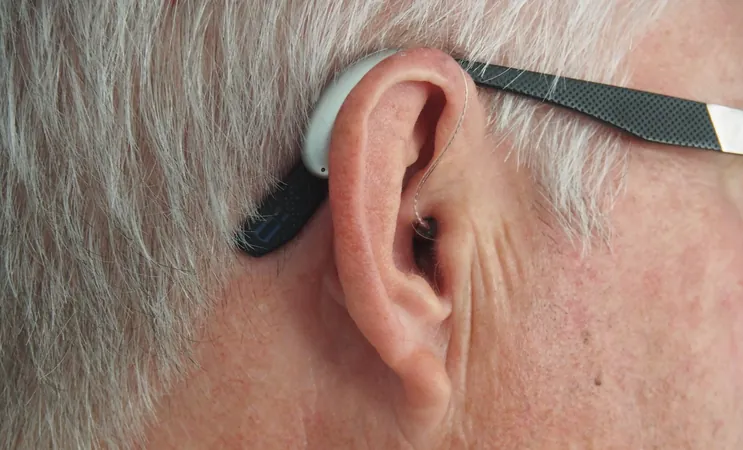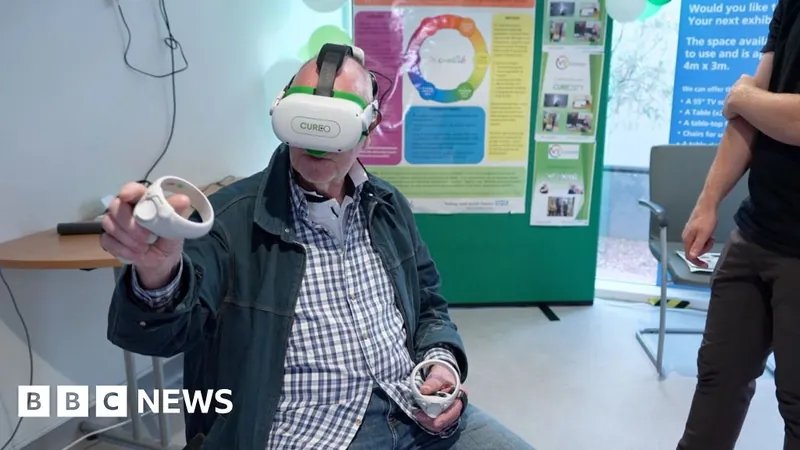
Breaking Barriers: The Hidden Struggles of Older Adults with Hearing Loss
2025-06-04
Author: Li
Revealing the Struggles of Hearing Loss Among Seniors
In a groundbreaking study, researchers have delved deep into the experiences of Australians over 40 who depend on hearing aids, cochlear implants, or both. Through comprehensive interviews, they've uncovered the stark realities faced by older adults in navigating the complexities of hearing health care.
A Fragmented System Revealed
The study is a part of the ambitious Hearing Impairment in Adults: Longitudinal Outcome Study (HALOS), aimed at enhancing clinical practices and shaping policies regarding hearing interventions for the elderly. Professor Bamini Gopinath, the project’s senior author, laments that despite technological advances, those dealing with hearing loss still find themselves in a fragmented care system where their specific needs often go unaddressed.
"What struck us was the vast variability in hearing health care experiences," she noted. Many voiced frustration that their general practitioners (GPs) and audiologists failed to fully comprehend the nuances of their hearing challenges, impacting every facet of their lives.
The Neglect of Hearing Health
Professor Gopinath pointed out that while GPs juggle numerous health issues, hearing loss is often sidelined. "It seems to be underestimated, especially when compared to conditions like heart disease or diabetes," she emphasized. Some interviewees felt that hearing aids were treated as the go-to solution, while many were oblivious to the potential benefits of cochlear implants.
Life Disruptions Due to Delays
Participants revealed alarming stories of extended waiting times for assessments and the confusion surrounding eligibility, compounded by financial constraints that hindered their hearing health journeys. Many expressed disappointment that audiologists weren't inquiring about how hearing loss affected their daily lives, work, relationships, and mental well-being.
The Truth About Funding Models
Further complicating matters, the study highlighted how government funding initiatives like the National Disability Insurance Scheme (NDIS) and Hearing Services Program often clash with the real needs of adults with hearing loss. Stringent eligibility criteria and bureaucratic obstacles have dissuaded many from seeking the help they desperately need.
Regional Barriers to Access
Participants residing in rural areas faced unique challenges with limited access to specialized services, leading to cumbersome management of multiple appointments for different hearing devices.
A Call for Integrated Care Solutions
The research team advocates for a radical overhaul of the hearing care system. They propose a cohesive, multidisciplinary approach that combines medical expertise with emotional and practical support throughout the patient journey.
Such a model would streamline communication between primary care providers, audiologists, and community services, incorporating tele-audiology and digital tools to aid those in remote regions.
Time for a Paradigm Shift in Hearing Care
As Australia grapples with an aging population and rising incidences of hearing loss, Professor Gopinath insists that "hearing health must be seen as crucial to aging gracefully." It's imperative to pivot from isolated appointments to an integrated journey that enhances access to necessary services. The ongoing efforts to develop standardized guidelines aim to empower GPs and audiologists, ensuring they can effectively discuss timely support options with their clients.


 Brasil (PT)
Brasil (PT)
 Canada (EN)
Canada (EN)
 Chile (ES)
Chile (ES)
 Česko (CS)
Česko (CS)
 대한민국 (KO)
대한민국 (KO)
 España (ES)
España (ES)
 France (FR)
France (FR)
 Hong Kong (EN)
Hong Kong (EN)
 Italia (IT)
Italia (IT)
 日本 (JA)
日本 (JA)
 Magyarország (HU)
Magyarország (HU)
 Norge (NO)
Norge (NO)
 Polska (PL)
Polska (PL)
 Schweiz (DE)
Schweiz (DE)
 Singapore (EN)
Singapore (EN)
 Sverige (SV)
Sverige (SV)
 Suomi (FI)
Suomi (FI)
 Türkiye (TR)
Türkiye (TR)
 الإمارات العربية المتحدة (AR)
الإمارات العربية المتحدة (AR)